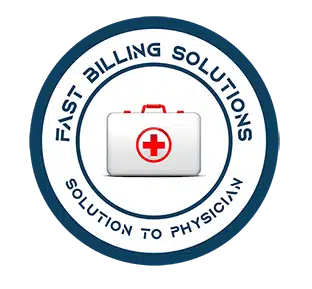Professional medical billing audit services provider verifies healthcare billing practices, coding accuracy, and compliance with healthcare regulations. It aims to identify and correct errors, irregularities, and potentially fraudulent activities in the billing process. Trained professionals, including internal, external, and specialized healthcare billing audit firms, conduct it.
The auditor analyzes medical records, billing statements, and insurance claims to ensure accuracy, completeness, and compliance with relevant laws and regulations. The ultimate goal of healthcare billing audit services is to improve the billing process’s quality and efficiency and prevent financial losses and legal liabilities for healthcare providers. Medical Billing audit services in New York can help healthcare providers improve the quality and efficiency of their billing practices, prevent financial losses, and reduce legal liabilities.
Importance of Healthcare Billing Audits in New York
Healthcare billing audit is crucial due to the high risk of healthcare fraud and the strict regulatory requirements. Healthcare providers must comply with state and federal laws and regulations, including HIPAA, Medicaid, and Medicare regulations. Failure to comply with these laws can result in financial penalties, legal liabilities, and damage to the provider’s reputation. Moreover, healthcare billing errors can lead to financial losses, denied claims, and billing disputes, affecting the provider’s revenue cycle management.

Healthcare billing audit helps healthcare providers identify and correct errors, irregularities, and fraudulent activities in the billing process, ensuring compliance and accuracy. Medical Billing Audit services professionals also allow providers to optimize their revenue cycle management, improve patient satisfaction, and maintain their reputation and credibility in the healthcare industry.
Types of Medical Billing in New York
Several types are available, each with its unique approach, focus, and objectives. Here are the four most common types of billing healthcare audits in New York:
- Comprehensive healthcare billing audit: This audit covers all aspects of the billing process, from patient registration to claims submission, and includes a review of medical records, billing statements, and insurance claims.
- Targeted Healthcare billing audit: This audit focuses on specific areas of the billing process, such as coding accuracy, claims denials, or compliance with regulatory requirements.
- Post-payment Healthcare billing audit reviews previously paid claims to identify errors or irregularities and recover overpayments.
- Prepayment Healthcare billing audit: This audit examines claims before payment to ensure accuracy, completeness, and compliance with regulatory requirements. This type of audit is common in government-funded healthcare programs, such as Medicaid or Medicare.
With the help of Fast Billing Solutions, you can get the best medical billing audit services in New York.
Internal vs. External Billing Audit Services in New York
Medical Coding Audits can be performed internally or externally. An internal audit is conducted by the healthcare provider’s internal audit department or staff and focuses on identifying and correcting billing errors, irregularities, or fraudulent activities within the organization. Internal audits are often conducted regularly and may be a part of the provider’s risk management program. On the other hand, external audits are performed by independent third-party audit firms and focus on evaluating the provider’s compliance with regulatory requirements, industry standards, and best practices.

Steps Involved in Medical Billing Audit Services in New York
The process of auditing healthcare billing practices in New York typically involves several steps, including:
- Planning involves defining the audit objectives, scope, and methodology and identifying the audit team.
- Data collection: This involves gathering and analyzing data from various sources, such as medical records, billing statements, and insurance claims.
- Review: This involves examining the data to identify potential errors, irregularities, or fraudulent activities and verifying compliance with regulatory requirements.
- Reporting: This involves documenting the audit’s findings, conclusions, and recommendations and presenting them to the healthcare provider.
- Follow-up: This involves tracking and monitoring the implementation of the audit recommendations and verifying their effectiveness.
Continuous improvement involves incorporating the audit findings and recommendations into the provider’s quality improvement program to enhance the billing process’s accuracy, efficiency, and compliance. Medical billing audit services in New York are crucial for healthcare providers to ensure accurate billing and compliance with regulatory requirements. Contact Fast Billing Solutions professionals for best billing solutions in New York.



